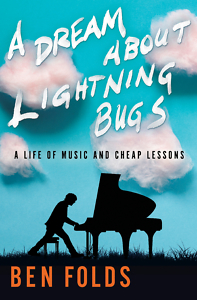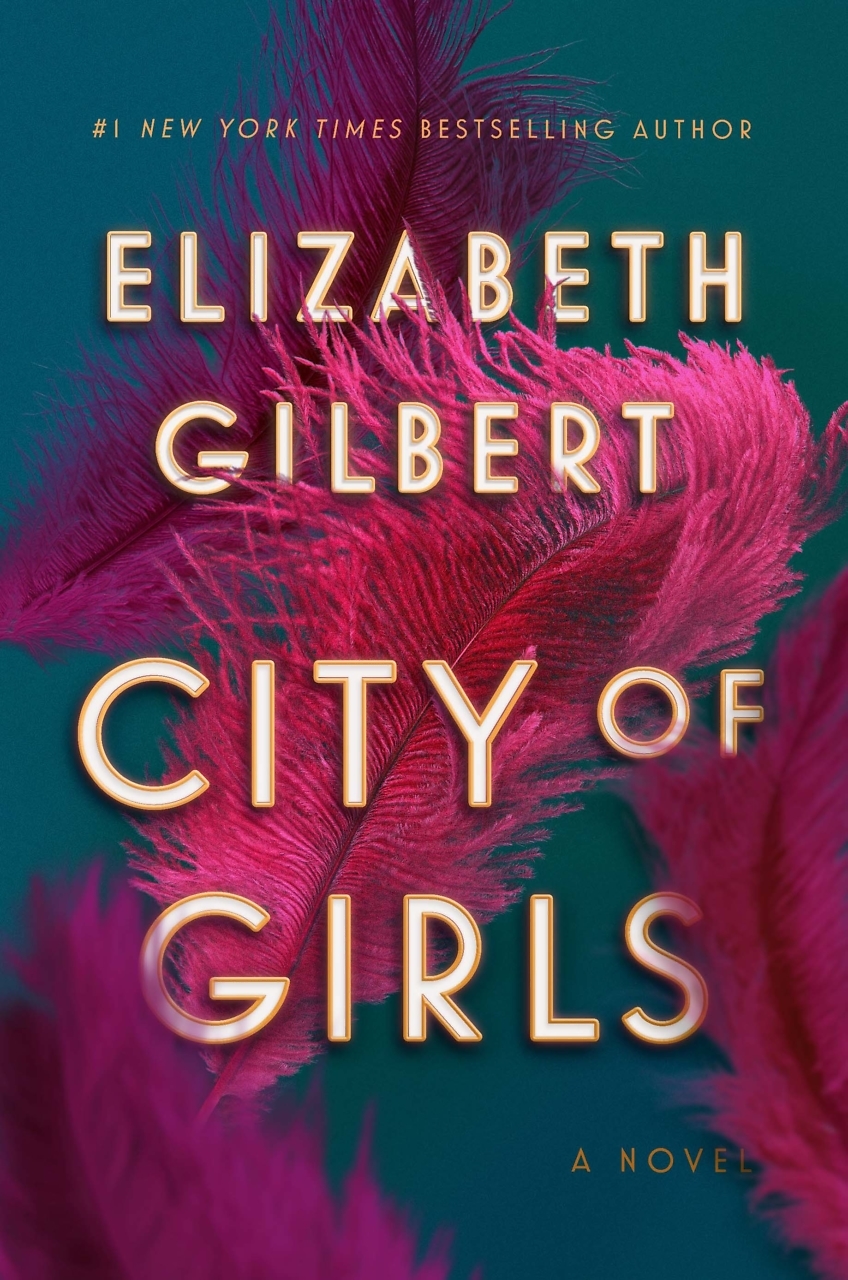Hand Me That Piano
Musical savant and indie rock icon Ben Folds delivers a quirky, iconoclastic memoir
Ben Folds’ memoir, A Dream About Lightning Bugs, is as refreshingly iconoclastic as the extraordinary career of its author, who has evolved from indie rock hero to classical composer, network singing show judge, and the first-ever artistic advisor to the National Symphony Orchestra.

“In my dream,” Folds writes, recalling one of his earliest childhood memories, “’lightnin’ bugs,’ as the old folks called them, lit up in a dazzling succession and sparkled around the backyard. Somehow, I was the only one who could see these lightnin’ bugs, but if I pointed them out, or caught them in a jar, then the others got to see them too.” To 3-year-old Ben, the dream was just a dream. Looking back across a storied career spanning four decades, Folds sees the dream now as a harbinger of his future and a potent metaphor for creativity: “At its most basic, making art is about following what’s luminous to you and putting it in a jar, to share with others.”
Folds burst on the music scene in the mid-90s as singer and principal songwriter for the brash North Carolina-based trio, the Ben Folds Five. From their tongue-in-cheek name to the unprecedented spectacle of a punkish pop band featuring three-part harmonies and an impish frontman who played piano like the demon child of Jimi Hendrix and Elton John, the group simultaneously defied and embodied the style and ethos of post-Nirvana alternative rock. In an appropriately odd twist, the group’s biggest hit turned out to be “Brick,” a plaintive ballad about teenage abortion.
After the group’s dissolution, Folds continued to challenge expectations, with a solo album titled Rockin’ the Suburbs and creative collaborations with actor William Shatner and novelist Nick Hornby. He ventured into classical music, composing a piano concerto for the Nashville Ballet that premiered with the Nashville Symphony in 2014, and he was a key player in the campaign to save Music Row’s fabled RCA Studio A, a landmark in the history of country music.
 This would all be remarkable enough had Folds not emerged from a peripatetic working-class childhood in North Carolina. Both of his parents survived childhood abuse, which Folds believed engendered their relatively freewheeling and eccentric lifestyle: “Rules, routines, and rituals were out the window. A family walk could mean hopping over fences with DO NOT ENTER signs. Mama would often allow me to be late to school if my favorite song was about to play on the radio.” Though Folds’ childhood was hardly idyllic, he credits his parents’ disregard for convention, along with the unstructured time it afforded, with nurturing his creativity and sense of daring.
This would all be remarkable enough had Folds not emerged from a peripatetic working-class childhood in North Carolina. Both of his parents survived childhood abuse, which Folds believed engendered their relatively freewheeling and eccentric lifestyle: “Rules, routines, and rituals were out the window. A family walk could mean hopping over fences with DO NOT ENTER signs. Mama would often allow me to be late to school if my favorite song was about to play on the radio.” Though Folds’ childhood was hardly idyllic, he credits his parents’ disregard for convention, along with the unstructured time it afforded, with nurturing his creativity and sense of daring.
Along with stories from his early childhood and highlights of his struggle to find his voice and get a break in music — including tossing his drums into a lake after failing a crucial exam at college, stints in wedding reception bands and upstart rock groups, and a failed attempt to become a Music Row songwriter — Folds also exposes the underside of an outwardly successful career. He frankly recounts strained and broken professional and personal relationships that resulted from pressure to duplicate success and evolve as an artist in a rapidly changing industry.
As suggested by chapter titles like “Dropped at Exams in a Cop Car” and “The Existential Chicken Dance,” Folds writes with self-deprecating wit, as well as deep sincerity and earnest belief in the concept of what Folds’ father calls “cheap lessons” — which Folds himself defines as missteps with “severe-enough consequences for my actions that I might learn something but not so severe that I would end up losing a limb.” The point, Folds suggests, is not to avoid mistakes or suffering, but to be capable of moving forward. “I found the God of Cheap Lessons both an angry and a merciful God,” Folds writes. “He dealt all I could stand and left my limbs intact.”

Ed Tarkington’s debut novel, Only Love Can Break Your Heart, was published by Algonquin Books in 2016. His second novel, So Wise So Young, is forthcoming from Algonquin in fall 2020. He lives in Nashville.


